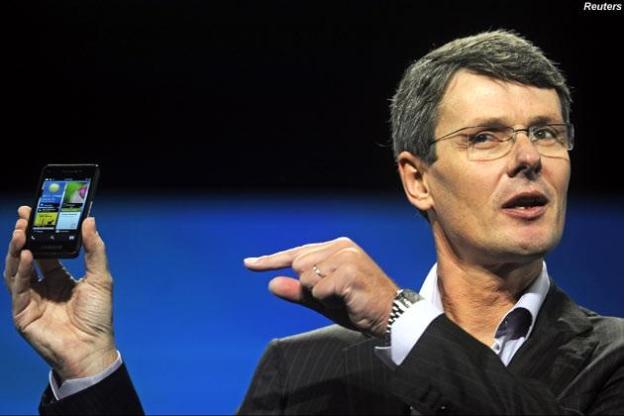
The decay and failures of Research in Motion have been well documented by news organizations, including us, for the last few years. Feeling beaten into a corner, RIM CEO Thorsten Heins took the unusual step of defending himself and his company in an editorial for The Globe and Mail, a Canadian publication. In it, he talks about the challenges facing RIM’s BlackBerry phones, but assures everyone that it’s about to change everything in the smartphone world with major innovation.
“….we believe RIM is a company at the beginning of a transition that we expect will once again change the way people communicate,” writes Heins. “In technology, it is not if you have to change, but when you have to change, and we are in the earliest days of truly mobile computing – an era in which people interact with the world around them in ways we could barely imagine just a few years ago.”
The CEO did not reveal many details about BlackBerry 10, but did say that it “will connect users not just to each other, but to the embedded systems that run constantly in the background of everyday life – from parking meters and car computers to credit card machines and ticket counters.” It sounds cool, but Android and iOS are also aiming to do the same thing.
Heins also took a few slaps at the media for writing RIM off: “As some pundits write RIM’s obituary, the company’s global subscriber base continues to grow, to more than 78 million people in 175 countries. In many of those countries – some of the fastest growing markets in the world – RIM is the top smart-phone; and in some, RIM devices account for the top three spots. We have relationships with 650 carriers around the globe; RIM’s reliability and security make it the first choice for countless government agencies and are part of the reason more than 90 per cent of Fortune 500 companies deploy BlackBerry in their enterprises.”
Lastly, he makes the point that many of those who criticize BlackBerry 10 have done so without actually trying it out. To that end, he’s probably right. Though I have seen the BB 10 Developer Alpha device in person and touched it, RIM executives and PR agents limited what I could and couldn’t play around with. At the time, I noted that it appeared woefully unfinished for a platform launching in late 2012. As it turns out, I must have been right because RIM delayed BB 10 into early 2013 in its recent earnings call.
So, does RIM have a chance? Yes, of course it does (as we noted when Heins first took over as RIM CEO), but its prospects fade the longer it takes to deliver on the promise of BlackBerry 10.


